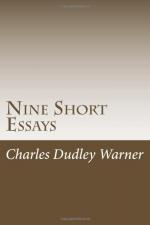It was a lovely Sunday morning, before the break of day, that he was marched to the place of execution, September 22d. While awaiting the necessary preparations, a courteous young officer permitted him to sit in his tent. He asked for the presence of a chaplain; the request was refused. He asked for a Bible; it was denied. But at the solicitation of the young officer he was furnished with writing materials, and wrote briefly to his mother, his sister, and his betrothed. When the infamous Cunningham, to whom Howe had delivered him, read what was written, he was furious at the noble and dauntless spirit shown, and with foul oaths tore the letters into shreds, saying afterwards “that the rebels should never know that they had a man who could die with such firmness.” As Hale stood upon the fatal ladder, Cunningham taunted him, and tauntingly demanded his “last dying speech and confession.” The hero did not heed the words of the brute, but, looking calmly upon the spectators, said in a clear voice, “I only regret that I have but one life to lose for my country.” And the ladder was snatched from under him.
My friends, we are not honoring today a lad who appears for a moment in a heroic light, but one of the most worthy of the citizens of Connecticut, who has by his lofty character long honored her, wherever patriotism is not a mere name, and where Christian manhood is respected. We have had many heroes, many youths of promise, and men of note, whose names are our only great and enduring riches; but no one of them all better illustrated, short as was his career, the virtues we desire for all our sons. We have long delayed this tribute to his character and his deeds, but in spite of our neglect his fame has grown year by year, as war and politics have taught us what is really admirable in a human being; and we are now sure that we are not erecting a monument to an ephemeral reputation. It is fit that it should stand here, one of the chief distinctions of our splendid Capitol, here in the political centre of the State, here in the city where first in all the world was proclaimed and put into a political charter the fundamental idea of democracy, that “government rests upon the consent of the people,” here in the city where by the action of these self existing towns was formed the model, the town and the commonwealth, the bi-cameral legislature, of our constitutional federal union. If the soul of Nathan Hale, immortal in youth in the air of heaven, can behold today this scene, as doubtless it can, in the midst of a State whose prosperity the young colonist could not have imagined in his wildest dreams for his country, he must feel anew the truth that there is nothing too sacred for a man to give for his native land.
Governor Lounsbury, the labor of the commission is finished. On their behalf I present this work of art to the State of Connecticut.
Let the statue speak for itself.



